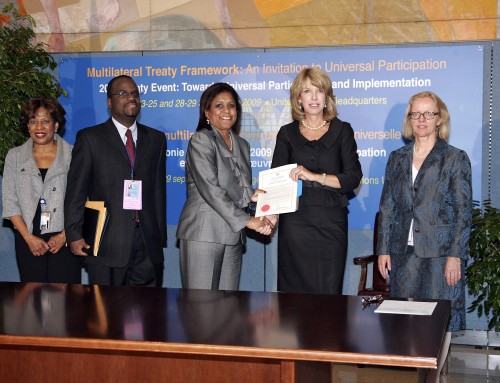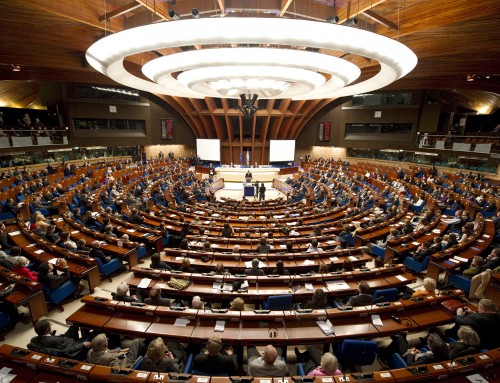Project Description
Switzerland has worked both at the international level (with the International Committee of the Red Cross) and the national level towards clarifying the rules applying to the operations of Private Military and Security Companies (PMSCs).
Description
International level:
A few years back, some critics emerged affirming that PMSCs operate in a legal vacuum. Switzerland – with its humanitarian tradition and as Depository of the Geneva Conventions and their Additional Protocols – wanted to demonstrate that this thesis was false: There are rules deriving from international humanitarian law, international human rights law, State responsibility and other sources applicable to PMSC operations. Therefore, Switzerland launched in 2006 – together with the ICRC – an international process that included Contracting States, Home States and Territorial States.
National level:
Based on a 2005 report on private military and security companies, the Federal Council concluded that regulatory action with regard to contracting of private military and security companies (“PMSCs”) needed to be taken. On 31 October 2007, it adopted an ordinance on the assignment of Federal Government tasks to private security companies. The ordinance defines the minimum conditions under which the Federal Government may award contracts to private military and security companies. The conditions are designed to ensure that only companies likely to behave responsibly will be contracted.
In recent years, the issue of PMSCs operating out of Switzerland in other States has taken on growing significance. As of the end of 2010, some twenty security companies could be identified as being effectively or potentially active in crisis or conflict zones. It can be assumed that the market for private security services will continue to grow in the future.
Numerous Federal Acts are already applicable to private security companies. But the majority of regulations are cantonal, and do not apply to private security companies operating abroad. As a result, these companies conduct their activities without being subject to any system of oversight.
Key results
International level:
Switzerland initiated together with the International Committee of the Red Cross (ICRC) the Montreux Document on pertinent international legal obligations and good practices for States related to operations of private military and security companies during armed conflict of 17 September 2008. The Montreux Document is now endorsed by 52 States and three international organizations (https://www.eda.admin.ch/eda/en/home/aussenpolitik/voelkerrecht/humanitaeres_voelkerrecht/private-sicherheitsunternehmen/teilnehmerstaaten.html).
The Montreux Document Forum was launched during a Constitutional Meeting which took place on 16 December 2014 in Geneva. By providing a venue for informal consultation among Montreux Document participants, the Montreux Document Forum seeks to support national implementation of the Montreux Document and the development of implementation tools, as well as to bring more states to actively support it. The Forum further aims to strengthen dialogue on lessons learned, good practices and challenges related to the regulation of PMSCs.
On a parallel basis, Switzerland encouraged a follow-up by the PMSC industry to the Montreux Document. The International Code of Conduct for private Security Service Providers (ICoC) of 9 November 2010 was launched by Switzerland and the private security sector, with the participation of civil society and other governments, with the aim of setting human-rights compliant industry standards and good practices. The overarching purpose of the independent governance and oversight mechanism of the ICoC, which was set-up in Geneva and constituted as a Swiss Association operating under Swiss law in September 2013, is to promote the responsible provision of security services and respect for human rights and national and international law by exercising independent governance and oversight of the ICoC process in accordance with the Code.
National level:
The Federal Act on Private Security Services Provided Abroad of 23 January 2013 is aimed at filling this gap. The Act is intended to help uphold Swiss neutrality and to guarantee compliance with international law.
The Act will apply to individuals and companies that provide, from Switzerland, private security services abroad, or who provide in Switzerland services in connection with private security services provided abroad. The Act also covers companies based in Switzerland that exercise control over security companies operating abroad. It prohibits by law certain activities connected with direct participation in hostilities or with serious violations of human rights, and provides for a system of prohibitions that can be issued ad hoc by the competent authority in specific cases. For the oversight of activities conducted abroad, the Act foresees a duty on the part of companies to file a declaration with the competent authority. Activities in conflict with the purposes of the Act will be prohibited by the authority. In exceptional cases, however, special authorization may be granted by the Federal Council. On the other hand, companies are permitted to provide services abroad, as long as these are not problematic in nature. Infringements of the Act will be subject to punishment. The Act also governs the contracting of security companies by Federal authorities for the performance of certain tasks of protection abroad. It regulates the conditions for contracting with the companies. Specifically, the contracting authority must make certain that the security company meets certain requirements and that the security personnel has received adequate training for the performance of the protection tasks. As a rule, such personnel is to be unarmed, except in cases where it must be in a position to respond in self-defence or emergency situations. Subject to special authorization, to be granted in exceptional cases by the Federal Council, the use of force is also not permitted. For more detailed information, please refer to: www.ejpd.admin.ch/content/ejpd/en/home/themen/sicherheit/ref_gesetzgebung/ref_sicherheitsfirmen.html
https://www.bj.admin.ch/bj/de/home/sicherheit/gesetzgebung/sicherheitsfirmen.html
The Federal Act on Private Security Services Provided Abroad foresees an obligation to become signatories to the ICoC for companies which provide security services abroad from a base in Switzerland, or which conduct activities in Switzerland which are connected with the provision of such services.
Key lessons learnt
The regulation of a new phenomenon such as the use of PMSCs on an international level is a challenge: Clear rules are needed rapidly to establish predictability, accountability and legitimacy. But the traditional instruments of international law such as international conventions take quite some time to be negotiated and ratified by a sufficient number of States. In our view, new approaches and methods are therefore needed to set new international rules and standards.
The Swiss approach to the regulation of PMSC is an example of such a new approach. Different layers of regulations were devised within few years to address the different aspects of the issue. International regulations – be they binding or non-binding – may then be complemented by national legislations or policies. Self-regulation of the industry is an additional and complementary layer of regulation. Effective implementation of the ICoC by the industry is therefore an important part of the regulatory framework. If all clients of private security companies – in particular governments and intergovernmental organizations – require in their contracts that all services be performed in accordance with the ICoC, this ‘soft law’ instrument will progressively become mandatory. One could even go one step further: not only Contracting States, but also Home States and Territorial States may legally require all PMSCs headquartered or active on their territory to sign up to the Code. Such rules would further strengthen the movement towards the universal and mandatory regulation of the activities of PMSCs. The Swiss Act may provide an interesting example of such an ambitious approach.
It was necessary for the Federal Act on Private Security Services Provided Abroad to build on Montreux Document and to incorporate pertinent international legal obligations and good practices into national law. The Act also builds on the ICoC, as companies which provide security services abroad from a base in Switzerland as well as companies contracted by Switzerland have an obligation to become signatories to the ICoC. In other words, the Act ties together different layers of regulation and adds a binding element to them.





